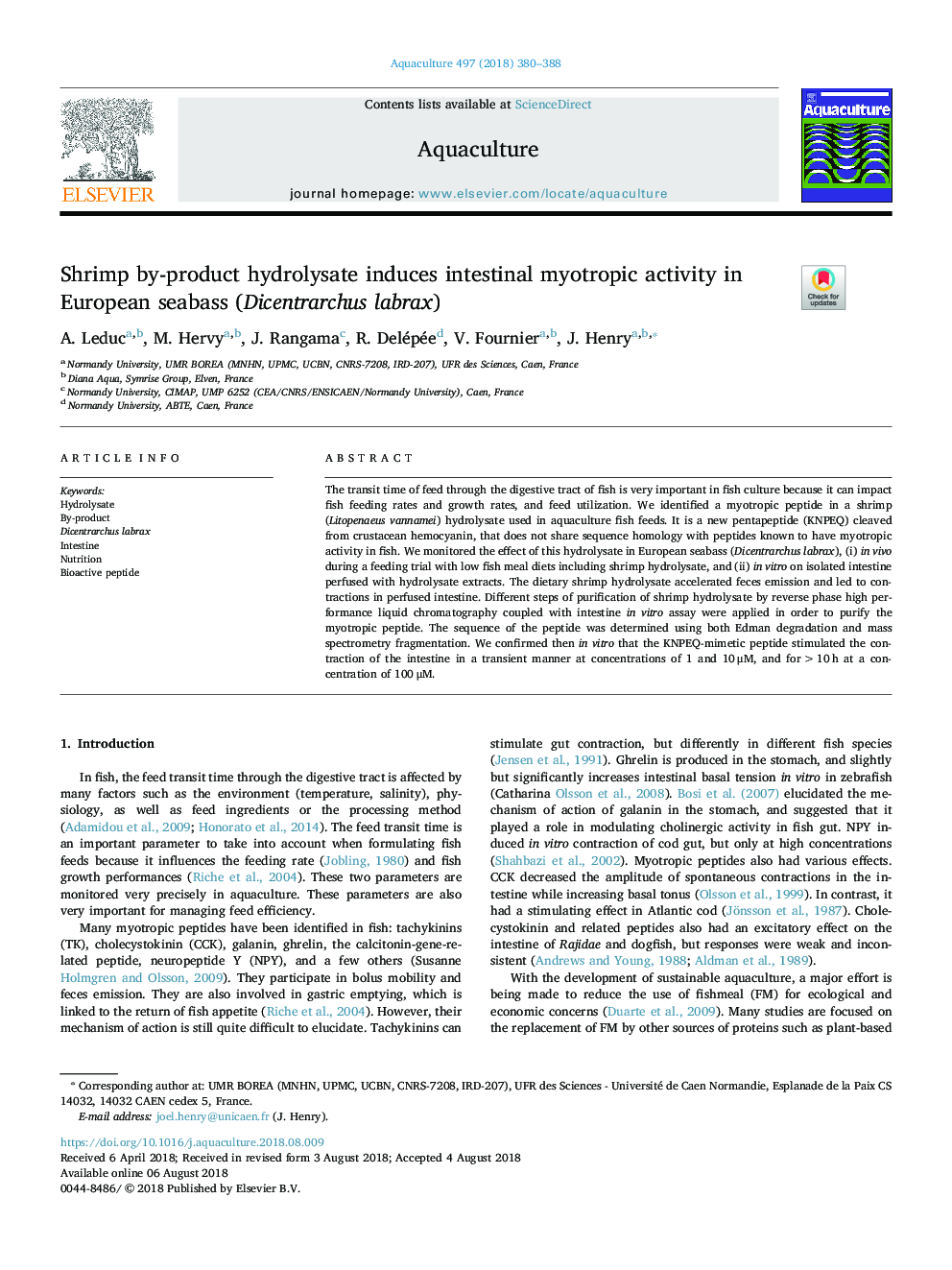| Article ID | Journal | Published Year | Pages | File Type |
|---|---|---|---|---|
| 8492922 | Aquaculture | 2018 | 9 Pages |
Abstract
The transit time of feed through the digestive tract of fish is very important in fish culture because it can impact fish feeding rates and growth rates, and feed utilization. We identified a myotropic peptide in a shrimp (Litopenaeus vannamei) hydrolysate used in aquaculture fish feeds. It is a new pentapeptide (KNPEQ) cleaved from crustacean hemocyanin, that does not share sequence homology with peptides known to have myotropic activity in fish. We monitored the effect of this hydrolysate in European seabass (Dicentrarchus labrax), (i) in vivo during a feeding trial with low fish meal diets including shrimp hydrolysate, and (ii) in vitro on isolated intestine perfused with hydrolysate extracts. The dietary shrimp hydrolysate accelerated feces emission and led to contractions in perfused intestine. Different steps of purification of shrimp hydrolysate by reverse phase high performance liquid chromatography coupled with intestine in vitro assay were applied in order to purify the myotropic peptide. The sequence of the peptide was determined using both Edman degradation and mass spectrometry fragmentation. We confirmed then in vitro that the KNPEQ-mimetic peptide stimulated the contraction of the intestine in a transient manner at concentrations of 1 and 10â¯Î¼M, and for >10â¯h at a concentration of 100â¯Î¼M.
Related Topics
Life Sciences
Agricultural and Biological Sciences
Aquatic Science
Authors
A. Leduc, M. Hervy, J. Rangama, R. Delépée, V. Fournier, J. Henry,
